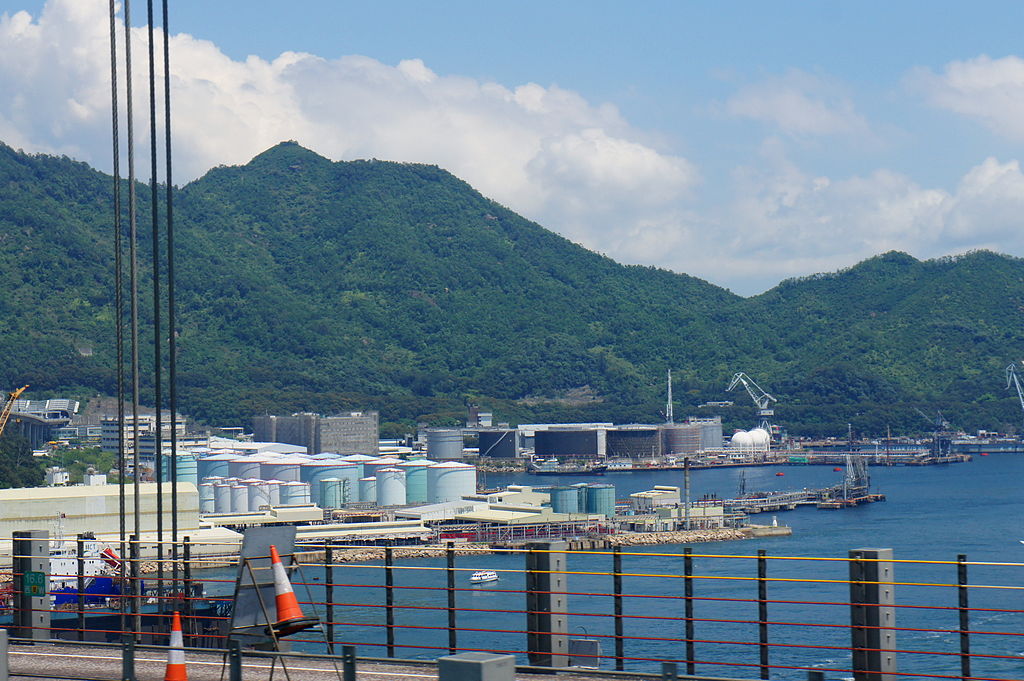China's planned tariffs on U.S. crude oil and liquefied natural gas (LNG), set to take effect on February 10, are expected to prompt traders to seek waivers, trade sources said. Beijing announced a 15% levy on U.S. LNG and a 10% duty on crude oil imports, following new U.S. tariffs imposed by the Trump administration.
Currently, four tankers carrying six million barrels of U.S. crude and two LNG vessels are en route to China, according to Kpler and LSEG data. Traders anticipate waiver requests for booked shipments but see challenges for future deals. A Chinese trade source noted that reselling U.S. oil may be unfeasible due to unfavorable pricing.
Unipec, the trading arm of Sinopec, is expected to adjust its strategy by increasing swaps with Korean and Japanese buyers or selling more to U.S. customers, a source said. Sinopec declined to comment.
At least eight Very Large Crude Carriers (VLCCs) have been booked by major firms, including Vitol, Gunvor, Occidental, ExxonMobil, and TotalEnergies' trading arm, ATMI. These companies typically do not disclose commercial activities.
For LNG, PetroChina-controlled vessels Mu Lan and Wudang are scheduled to arrive in China soon. Analysts predict U.S. LNG exports to China will drop significantly as buyers turn to Qatar, Russia, and other suppliers.
U.S. oil shipments currently en route to China include the Sea Lion, Sonangol Huila, Ulysses, and Kondor tankers, with estimated arrivals between February and April. The upcoming tariffs are expected to shift global trade flows, favoring alternative Asian and European markets.



 Singapore Budget 2026 Set for Fiscal Prudence as Growth Remains Resilient
Singapore Budget 2026 Set for Fiscal Prudence as Growth Remains Resilient  SoftBank Shares Slide After Arm Earnings Miss Fuels Tech Stock Sell-Off
SoftBank Shares Slide After Arm Earnings Miss Fuels Tech Stock Sell-Off  Gold and Silver Prices Rebound After Volatile Week Triggered by Fed Nomination
Gold and Silver Prices Rebound After Volatile Week Triggered by Fed Nomination  Japan Economy Poised for Q4 2025 Growth as Investment and Consumption Hold Firm
Japan Economy Poised for Q4 2025 Growth as Investment and Consumption Hold Firm  Toyota’s Surprise CEO Change Signals Strategic Shift Amid Global Auto Turmoil
Toyota’s Surprise CEO Change Signals Strategic Shift Amid Global Auto Turmoil  SpaceX Pushes for Early Stock Index Inclusion Ahead of Potential Record-Breaking IPO
SpaceX Pushes for Early Stock Index Inclusion Ahead of Potential Record-Breaking IPO  OpenAI Expands Enterprise AI Strategy With Major Hiring Push Ahead of New Business Offering
OpenAI Expands Enterprise AI Strategy With Major Hiring Push Ahead of New Business Offering  Trump Lifts 25% Tariff on Indian Goods in Strategic U.S.–India Trade and Energy Deal
Trump Lifts 25% Tariff on Indian Goods in Strategic U.S.–India Trade and Energy Deal  Fed Governor Lisa Cook Warns Inflation Risks Remain as Rates Stay Steady
Fed Governor Lisa Cook Warns Inflation Risks Remain as Rates Stay Steady  Thailand Inflation Remains Negative for 10th Straight Month in January
Thailand Inflation Remains Negative for 10th Straight Month in January  Trump Backs Nexstar–Tegna Merger Amid Shifting U.S. Media Landscape
Trump Backs Nexstar–Tegna Merger Amid Shifting U.S. Media Landscape  Tencent Shares Slide After WeChat Restricts YuanBao AI Promotional Links
Tencent Shares Slide After WeChat Restricts YuanBao AI Promotional Links  Bank of Japan Signals Readiness for Near-Term Rate Hike as Inflation Nears Target
Bank of Japan Signals Readiness for Near-Term Rate Hike as Inflation Nears Target  Nvidia, ByteDance, and the U.S.-China AI Chip Standoff Over H200 Exports
Nvidia, ByteDance, and the U.S.-China AI Chip Standoff Over H200 Exports  Oil Prices Slide on US-Iran Talks, Dollar Strength and Profit-Taking Pressure
Oil Prices Slide on US-Iran Talks, Dollar Strength and Profit-Taking Pressure  South Korea Assures U.S. on Trade Deal Commitments Amid Tariff Concerns
South Korea Assures U.S. on Trade Deal Commitments Amid Tariff Concerns  TrumpRx Website Launches to Offer Discounted Prescription Drugs for Cash-Paying Americans
TrumpRx Website Launches to Offer Discounted Prescription Drugs for Cash-Paying Americans 































